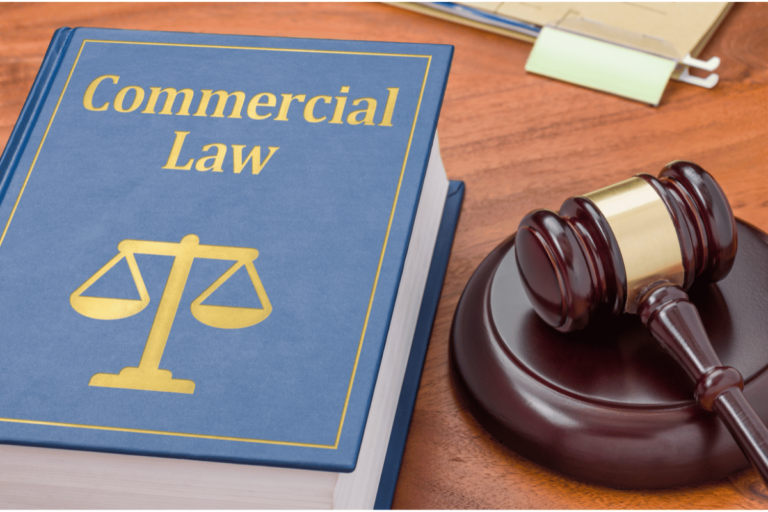Insider Trading Regulations: A Guide for SMEs
Insider trading is estimated to cost investors billions of dollars yearly. This illegal act includes trading stocks with secret, non-public information. It harms financial markets and lowers trust from investors. For small and medium-sized businesses, following insider trading rules is vital. It protects their business, reputation, and people they work with.
Key Takeaways:
- Insider trading can lead to significant financial losses for investors.
- Compliance with insider trading regulations is essential for SMEs.
- Understanding and adhering to these regulations helps protect business ethics.
- Non-compliance with insider trading regulations can result in severe legal and reputational consequences.
- By implementing robust compliance guidelines, SMEs can mitigate the risks associated with insider trading.
The Importance of Insider Trading Regulations for SMEs
Insider trading rules keep the financial markets fair. They help maintain trust and stop some people from gaining unfair benefits. For SMEs, following these rules is key to running an honest business. It also protects their image.
Under the law, SMEs need a clear policy on insider trading. This plan guides everyone involved, stating what’s okay and what’s not with stock trading. It helps build a company culture that respects the law, stays out of legal trouble, and keeps a good name.
“Complying with insider trading regulations is not only a legal obligation but also highlights a company’s commitment to fair and transparent business practices.”
A good insider trading policy explains insider info, deals with secrets, and tracks trading behaviors. This clarity helps workers understand the rules better. They’re then less likely to accidentally break the law.
Benefits of Insider Trading Policy for SMEs
Having the right insider trading policy does a lot of good for SMEs:
- It shows the company keeps to laws and acts ethically.
- Makes stakeholders trust the company more, boosting its image.
- Lowers the chances of facing big fines or other problems from breaking the law.
- Helps workers learn about these trading rules well, so they don’t make mistakes.
A custom insider trading policy is crucial for a company’s ethics and law adherence. SMEs must set up and follow these rules carefully. This protects their name and helps keep the financial world fair.
Understanding Insider Trading Regulations
Insider trading rules are made by groups like the SEC. They stop unfair trading that uses secrets not known by everyone. It’s important for small businesses to follow these rules closely to avoid getting into legal trouble.
Following these rules keeps the business world fair and ethical. The SEC ensures these rules are kept to protect investors and keep markets honest. By being clear and honest, small businesses show they are trustworthy and follow good business practices.
Insider trading is when people use secret information to trade stocks, giving them an unfair edge. Small businesses must know the laws about insider trading. They need to obey these rules to steer clear of legal problems and bad attention.
“Insider trading rules are there to keep markets fair, making sure everyone knows the details. Knowing these rules helps small businesses do right and steer clear of trouble.”
The SEC has strict measures to stop and catch insider trading. Small businesses should be familiar with these rules and make sure they have strong ways to follow them. They can do this by controlling who sees secret information, educating staff, and checking on trading closely.
Regulatory Compliance and Penalties
Breaking the insider trading laws can have big punishments for small businesses. The SEC can issue fines, take away illegal profits, and even charge people with crimes. Not following the rules can also harm how the business is seen, break trust with investors, and cause issues with how the business runs.
Securities Exchange Commission (SEC)
The SEC is key in making sure insider trading rules are followed in the U.S. It looks out for investors, keeps markets fair and clear, and helps businesses get money. Small businesses need to know the SEC’s power and aim to always match their standards.
Key Considerations for SMEs
For small businesses, it’s important to:
- Stay updated on the latest rules from the SEC.
- Set up clear rules inside to prevent insider trading.
- Teach workers everything they need to know about following the rules.
- Use strong methods to protect secret info and limit who can see it.
- Check trading often to spot and fix any rule breaking.
By making compliance a top priority and building a culture of honesty, small businesses can do well in sticking to insider trading regulations and keep a good name in the business world.
Next, we will look at the specific things you can’t do and the rules on insider trading in Section 4.
Insider Trading Prohibitions and Restrictions
Insider trading laws aim to stop people from using secret info to trade stocks. They cover many, like top execs and workers, who might know things others don’t. These laws are key for keeping financial markets fair.
If you know something before it’s public, you can’t use it to get ahead. This rule stops people from buying things like stocks or bonds early, using secret details.
Not just tech or drug companies, rules cover them all. Anyone with secret news can’t use it to trade.
Sharing secret info is also a no-go, even with family or friends. This stops use of secret tips for unfair gains.
Everyone must know the rules against insider trading. They include telling about trades and avoiding conflict of interest. Keeping records of trades is important to show you follow the law.
Penalties for Insider Trading Violations
Breaking insider trading rules can lead to big trouble. Fines, jail time, or both may follow if caught.
The SEC upholds laws against insider trading in the U.S. It checks risky trades and sues anyone breaking the rules.
Insider trading can badly damage a person or company’s reputation. People count on fair play. Being dishonest shakes trust and hurts business standing.
Compliance and Education
Sticking to insider trading rules is a must. This keeps the market fair and shows a commitment to honesty.
“Compliance with insider trading regulations is not only a legal requirement but also a reflection of a company’s commitment to maintaining a fair and transparent marketplace.”
Teaching everyone about insider trading is very important. This includes defining it and explaining what’s not allowed. Regular talks and checks keep everyone sharp and honest.
Companies can also set up their own rules to stop insider trading. These can involve times when trading is not allowed. Monitoring trades and looking into anything suspicious is a part of this.
Being proactive with insider trading education and compliance protects companies. It helps in avoiding legal trouble, keeping a good name, and making the market fair for all.
Insider Trading Compliance Guidelines for SMEs
Small and medium enterprises (SMEs) are key players in the global economy. They are crucial for economic growth. As these businesses get bigger, it’s vital for them to follow insider trading rules. This helps in keeping their business ethical and their name strong. Making and following guidelines for insider trading is critical for SMEs. It helps them stay within the law and promotes a culture of honesty.
Guidelines should cover many parts of stopping insider trading. First, it is important to set up how to deal with secret info. Make sure there are safe ways to keep and share important data. Only some people should be able to get to this info. And there must be set steps to stop secret info from leaking out.
Also, teaching employees is a big part of these rules. They need to understand the laws about insider trading. Knowing why ethics are important is crucial. So is learning the bad outcomes if they break these laws. Teaching your team well makes them less likely to make mistakes.
Having good ways to watch and report what’s going on is also crucial. Set up methods for employees to tell if someone is trading secrets without anyone knowing. This should be done safely, keeping these employees’ names secret. Also, watch for strange trading patterns. This can catch insider trading early.
If SMEs follow these steps, they show they run their business ethically. This helps keep the business honest. It also makes investors, customers, and partners trust them more. Emphasizing the importance of following insider trading rules helps build a workplace that values honesty. This is key for the long-term success of any business.
Key Takeaways:
- Compliance guidelines for SMEs ensure adherence to insider trading regulations and promote ethical business practices.
- Guidelines include procedures for handling confidential information, training programs for employees, and mechanisms for reporting and monitoring potential unauthorized trading activities.
- Developing a strong compliance framework demonstrates an SME’s commitment to business ethics and fosters trust among stakeholders.
Consequences of Non-Compliance with Insider Trading Regulations
Breaking insider trading rules can seriously hurt small to medium enterprises (SMEs). They might face fines, prison, or both. SMEs must learn about the legal dangers of insider trading. They should take steps to follow the law.
Not following these rules can also ruin an SME’s name. It can break trust with others and shake a company’s stock among investors. A bad reputation can last a long time and hurt an SME’s progress.
Understanding and obeying insider trading laws is critical for SMEs. With the right steps, they can prevent legal troubles. They can also protect their image.
Best Practices for Insider Trading Prevention
To stop insider trading, small and medium companies need to do more than just follow rules. By adopting various best methods, companies can create a trustworthy culture and lower the dangers of insider trading. These steps include:
- Ethical corporate culture: Start an ethical and open culture in your business. When organizations champion ethical values, people are more likely to follow insider trading rules and point out any issues.
- Regular training and awareness programs: Regular training on insider trading rules can greatly boost what employees know. These sessions should go over the laws, what happens if someone doesn’t follow them, and how to spot and report any fishy acts.
- Strict access controls to sensitive information: Set up tough access rules to limit who can view secret data. By letting only certain people handle this info, the chance of insider trading drops.
- Monitoring and reporting system: It’s key to have a full system for keeping an eye out on possible insider trading and reporting it. This system should include checks, deep-dive investigations, and a way to tell the right people about shady dealings or actions.
“By adopting these steps, small and medium companies can cut the risk of insider trading. This helps keep their name good and shows they are serious about doing business in a fair and rule-abiding way.”
By making these methods a part of their daily work, small and medium businesses can better avoid risks. It also shows their honesty and reliability, which draws in investors and helps them build strong ties for the future.
Resources for SMEs on Insider Trading Regulations
Understanding insider trading rules can be tricky for small and medium-sized companies. Fortunately, many resources can help. These tools and guides offer the knowledge needed to follow these rules.
The Securities Exchange Commission (SEC) is a key source of information. It provides detailed rules and tips for following them. SMEs can learn their duties by visiting the SEC’s site.
Online tools can also make compliance simpler. They might include checklists and templates. Using these digital aids can help SMEs meet the necessary standards.
Education is vital for following the law. SMEs can use online courses or e-books to learn the basics. Keeping up with new compliance methods is key. This investment can help SMEs build a culture of doing things right.
Compliance is a process from start to finish. SMEs should always look out for rule changes. Subscribing to newsletters and joining forums is a great way to keep up with the latest.
Seeking Professional Advice
Turning to experts for help is also wise. Legal and compliance advisors know insider trading rules well. They can give advice tailored to a business’s specific situation.
By using all available resources, SMEs can handle insider trading rules confidently. Following these rules shows a commitment to fairness. With the correct help, SMEs can navigate through these complex laws with ease.
Conclusion
Insider trading rules are important for small and mid-sized businesses. They help these companies follow ethics and laws. Also, they reduce the chance of major risks.
These rules show a business is honest and clear. By sticking to the rules, a business can protect its image.
It’s vital for small and mid-sized businesses to obey these rules. This way, they keep their market trust and do ethical business. By staying alert and taking clear actions, these businesses can stay successful and ethical.
FAQ
Q: What are insider trading regulations?
A: Insider trading regulations are rules to stop people from using secret info to trade unfairly. They aim to keep trading fair and square for all.
Q: Why are insider trading regulations important for SMEs?
A: These rules help SMEs maintain fair trading. They also safeguard a company’s image and cut down on risks of getting in trouble.
Q: Who governs insider trading regulations?
A: Bodies like the SEC in the U.S. are in charge of making and enforcing these rules.
Q: What is prohibited under insider trading regulations?
A: Rules against insider trading say those with secret info can’t use it to buy or sell stocks. They also can’t share this info to misuse it.
Q: How can SMEs comply with insider trading regulations?
A: To follow these rules, SMEs should create strong guidelines. This means how to deal with secret info, educate staff, and watch for suspicious trading closely.
Q: What are the consequences of non-compliance with insider trading regulations?
A: Breaking these rules can lead to heavy fines and jail. It also damages a company’s image, which messes up its dealings and trust with investors.
Q: What are the best practices for preventing insider trading?
A: Stopping insider trading starts with a clear, honest company culture. Then, keep staff informed, control who sees secret data, and watch trading activities closely.
Q: What resources are available for SMEs on insider trading regulations?
A: Look to the SEC for help, where you can find guides and online tools. Also, getting advice from professionals ensures you’re on the right track.
Q: Why is compliance with insider trading regulations important for SMEs?
A: Following these rules keeps SMEs ethical and legally safe. It also protects them from the serious trouble that breaking these rules can bring.
Source Links
- https://www.thehindubusinessline.com/markets/insider-trading-norms-for-mfs-hang-fire-a-year-after-notification/article67580071.ece
- https://www.eqs.com/compliance-blog/eu-market-abuse-regulation-mar/
- https://www.wto.org/english/tratop_e/msmes_e/handbook_policymaker_guides_e.pdf







